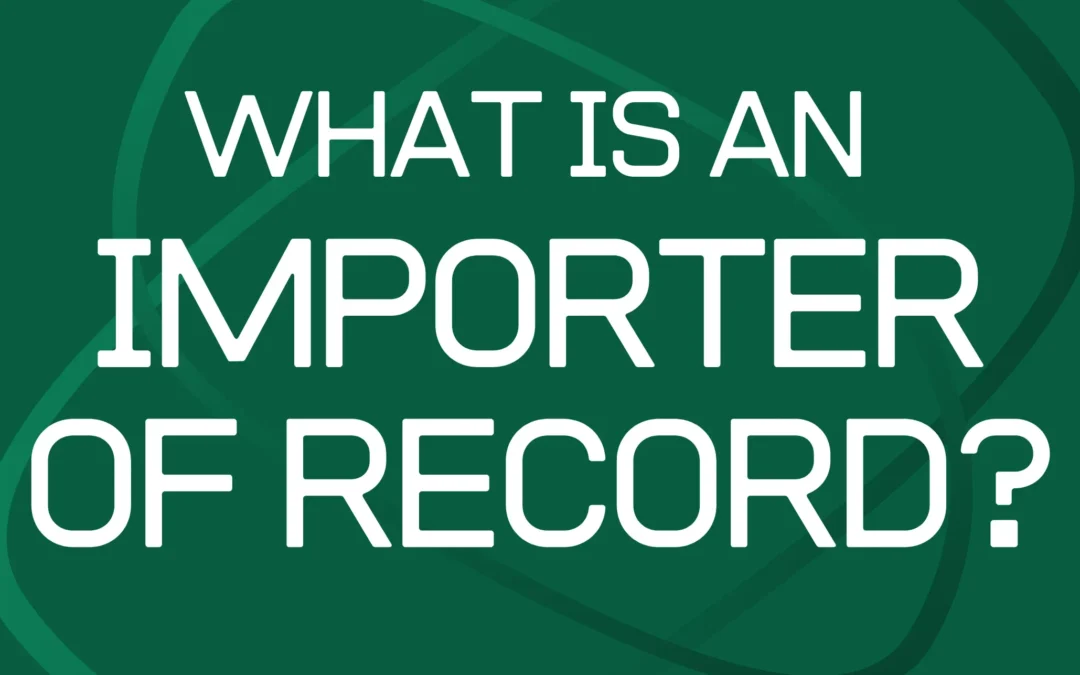Is your business equipped to handle the complexities of international trade? An Importer of Record could be the solution you need. But what is an importer of record, and why is it essential for your business? Navigating customs regulations and compliance can be overwhelming when importing goods—whether it’s tech equipment or other products. Working with an IOR service provider ensures a smoother process, avoids delays, and keeps your shipments moving without any hassle.
In this blog, we’ll have the Importer of Record explained and show why partnering with an IOR service provider is crucial for your business’s success. Keep reading to learn more.
What Does Importer of Record Mean?
The Importer of Record is the legal organization or individual responsible for ensuring that all imported goods meet the customs regulations and legal requirements of the country of import. This includes managing import documentation, duties, and taxes, and ensuring smooth clearance.
The IOR meaning highlights this responsibility, emphasizing the role of maintaining compliance with all necessary laws. Similarly, the IOR logistics meaning extends to overseeing the entire logistics process, ensuring seamless transportation, proper documentation, and adherence to all regulatory obligations. Together, these functions simplify global trade, allowing businesses to focus on growth while staying compliant.
Responsibilities of the Importer of Record
For any business engaged in international trade, understanding the role of an IOR is crucial. The IOR manages all legal and regulatory requirements for international shipments—from paying duties, tariffs, and taxes to completing essential documentation and paperwork. They assume full responsibility for each shipment, including navigating the complexities of handling dual-use goods, and they expertly address the key legal obligations of an IOR. Additionally, the IOR ensures that products meet stringent safety standards, which is particularly important in regions with rigorous regulatory frameworks, such as certain African countries.
Why Use an Importer of Record?
An Importer of Record service is essential when you want to expand your operations into new international markets but don’t have a registered presence in that country. Many countries require an entity or individual within their borders to handle the legal responsibilities of importing goods. Without a local presence, you may face delays or even be restricted from shipping your goods.
Using an IOR service helps solve this problem. It acts as a local presence for your company in the country where you’re exporting. This way, the IOR can handle the customs process and make sure the goods are cleared and delivered to the destination.
What an IOR Must Consider?
As we discussed earlier, we now clearly understand what an IOR is. However, It’s essential to recognize that there are several key responsibilities they must handle and consider, including crucial documents and requirements for customs clearance:
- Product Classification: They must ensure that the goods are correctly classified based on their type and value, determining the applicable customs duties and taxes.
- Import and Export Licenses: These licenses are required to prove that the business or entity is legally authorized to import or export goods to/from the country.
- Import Permits: Depending on the type of goods, they must secure specific permits that authorize the importation of those goods into the destination country.
- Fees/Taxes/Duties: They are responsible for paying any customs duties, taxes, or fees associated with the importation process. All relevant paperwork must be completed accurately and submitted to customs authorities.
- Power of Attorney (POA): A legal document that appoints the IOR (or another entity) to act on behalf of the importer. This document grants them the authority to make decisions, sign documents, and represent the business in customs matters.
- Country-Specific Regulations: Each country has its own customs rules and regulations, which they must be familiar with. These regulations can vary depending on the type of goods being imported, so they must stay up-to-date to ensure smooth clearance.
Importer of Record IOR Definitions
IOR shipping refers to the legal party responsible for ensuring that imported goods meet all applicable legal and regulatory standards. Various entities can fulfill this role, provided they adhere to the strict IOR eligibility criteria necessary to manage the import process effectively. In essence, the definition of an IOR encompasses any qualified party that takes on these compliance responsibilities.
So the IOR definitions could include:
The Goods’ Owner
The goods’ owner is the person or business that owns the goods being imported. The owner may assign the IOR to manage the import process on their behalf.
Consignee
The consignee is the recipient of the goods after they have been imported. While the consignee and the IOR can be the same entity, the consignee is generally the final recipient of the goods.
Customs Broker
A customs broker assists the IOR by managing the customs clearance process, helping with paperwork, and ensuring the goods meet regulatory requirements. However, the IOR remains legally responsible for the import.
Exporter
The exporter is the party that sends the goods to the importing country. They collaborate with the IOR to ensure the goods comply with import regulations for smooth customs clearance.
Key Points to Consider When Choosing an IOR Service Provider
After gaining a clear understanding of how the importer of record works, the key factors to consider when selecting an IOR service revolve around reliability, cost-effectiveness, and long-term operational efficiency.
To make an informed decision you should evaluate the following:
- Industry Expertise: Choose an IOR with experience in your industry to minimize risks and ensure compliance with industry-specific regulations. Their knowledge will help streamline your operations and reduce potential delays or errors in the import process.
- Power of Attorney: Ensure they provide a power of attorney. Without it, your company might have to manage import compliance directly, leading to increased administrative costs and potential legal issues. This document simplifies the importation process and protects your business interests.
- Comprehensive Service Offering: They should cover all customs clearance and shipment compliance aspects. This reduces the burden on your team, allowing you to focus on core business activities while ensuring that an expert manages the logistics process.
- Logistics Support: A good provider not only clears customs but also offers post-clearance logistics services. If they can’t provide transportation, they should have trusted partners for reliable delivery options. This will ensure your supply chain remains smooth and cost-effective.
- Long-Term Partnership: Opt for an IOR provider that you can build a lasting relationship with. This creates stability and consistency in your import operations, ensuring that you can rely on them for future shipments without constantly searching for new service providers.
- Record Retention: They should securely maintain records for at least five years, ensuring your business remains compliant with regulations and is ready for any audits. This reduces risk and protects your business from potential legal or financial liabilities.
Choose IOR Africa
An IOR ensures compliance with local import laws and tax regulations. For businesses seeking expert guidance in Africa and the Middle East, explore our customs compliance solutions to streamline your imports.
Deepen Your Knowledge About the Importer of Record
Frequently Asked Questions
Is the Importer of Record the owner?
The importer of record is not necessarily the owner. Sometimes, he can be a third party, like a customs broker or freight forwarder, who handles the logistics and compliance on behalf of the actual owner.
Is the consignee the Importer of Record (IOR)?
The consignee is typically not the importer of record . The consignee is the party responsible for receiving the goods at their destination after clearance, but their role is limited to accepting and taking possession of the goods. On the other hand, the IOR manages the legal and financial responsibilities associated with importing, such as paying duties, ensuring compliance with regulations, and fulfilling all import-related obligations. While the consignee’s primary responsibility is to receive the shipment, in some cases, they may also serve as the IOR if they are directly involved in overseeing the import process.
Can the IOR be a Freight Forwarder?
The IOR can be a Freight forwarder acting on behalf of the goods owner or the importer, particularly when the owner is unfamiliar with local regulations or prefers not to take on the responsibility. In this role, the freight forwarder oversees the customs clearance process, pays the necessary duties, and ensures that the import complies with all applicable local laws and regulations. By assuming these responsibilities, the freight forwarder effectively acts as the IOR, facilitating a smooth import process for the goods owner or importer.
Can the Importer of Record be changed?
The Importer of Record can be changed, but this typically requires approval and updated documentation from the customs authorities. The process often involves notifying the authorities about the change and providing any necessary documentation to support the transition. Additionally, the new IOR must be fully informed of their responsibilities and prepared to take on the legal and financial obligations associated with the role, such as ensuring compliance with regulations and paying duties.
Who is the importer of record on a shipment?
The importer of record on a shipment holds the same responsibilities as the usual IOR, but depending on the agreed-upon Incoterms, he can vary in terms of the party involved. He can be the buyer or recipient of the goods, the seller or exporter, or a third-party service provider such as a logistics company or IOR specialist. Choosing the right one is crucial to ensure compliance, avoid delays, and mitigate the risks of fines or penalties.

